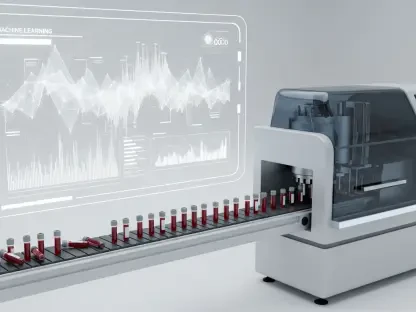In a world where obesity affects millions and weight loss solutions often fall short, a groundbreaking development in genetic testing is poised to change the game for those struggling to shed excess pounds. Imagine a future where a simple blood or saliva sample could reveal not just why weight loss is so challenging, but also which medication would work best for an individual’s unique biology. Recent research published in a leading scientific journal has unveiled a novel approach that promises to tailor obesity treatments to personal genetic profiles, moving away from the frustrating trial-and-error methods that dominate current practices. This advancement centers on understanding how genetic differences influence eating behaviors and responses to specific drugs, potentially transforming how doctors prescribe weight loss medications. By focusing on biological nuances rather than a one-size-fits-all model, this innovation could offer hope to countless individuals seeking effective solutions.
Revolutionizing Obesity Treatment with Genetics
Unlocking the Power of Personalized Medicine
The core of this scientific breakthrough lies in a new genetic metric known as the Calories to Satiation Genetic Risk Score (CTS-GRS), developed through rigorous research at a prominent medical institution. This score, derived from analyzing 10 specific genes related to food intake, provides a personalized estimate of how many calories a person needs to feel full. Unlike traditional weight loss strategies that often focus solely on body mass index or calorie restriction, this approach dives deeper into the biological mechanisms driving hunger and satiation. By using a simple sample of blood or saliva, the test can identify whether someone falls into categories like the “hungry brain,” characterized by consuming large meals, or the “hungry gut,” marked by frequent snacking despite average portion sizes. Such distinctions are crucial, as they highlight why generic treatments often fail to deliver consistent results across diverse populations, paving the way for more targeted interventions.
Tailoring Drug Choices to Genetic Profiles
Clinical trials involving nearly 800 adults with obesity have demonstrated the practical impact of the CTS-GRS in matching patients with the most effective weight loss medications. Participants in these studies were observed during all-you-can-eat meals to measure their satiation thresholds, revealing staggering differences—some felt full after just 140 calories, while others consumed over 2,000. Initial factors like body weight or appetite hormones provided little explanation for these variations, prompting researchers to turn to genetics. The trials tested two FDA-approved drugs, phentermine-topiramate and liraglutide, finding that individuals with high satiation thresholds often responded better to the former, which may help control portion sizes. Conversely, those with lower thresholds saw greater success with liraglutide, likely due to its effect on reducing overall hunger. This evidence suggests that genetic testing could significantly reduce the guesswork in prescribing, improving outcomes for patients.
Future Directions and Challenges in Genetic Testing
Expanding Beyond Genetics for Holistic Insights
As promising as the CTS-GRS is, researchers are already looking to enhance its accuracy by integrating additional biological data points into the testing framework. Beyond genetic markers, efforts are underway to incorporate information from the microbiome and metabolome—small-molecule chemicals present in biological samples—that could offer a more comprehensive view of an individual’s response to weight loss drugs. There’s also a push to develop predictive models for other popular medications, such as semaglutide, and to anticipate common side effects like nausea. This holistic approach reflects a broader understanding that obesity is a multifaceted condition, influenced by an interplay of factors that extend far beyond simple calorie intake or willpower. By combining these diverse data sources, the goal is to create a more refined tool that addresses the complexity of weight management with unprecedented precision, potentially benefiting a wider range of patients.
Navigating Ethical and Practical Hurdles
While the potential of genetic testing in obesity treatment is undeniable, certain challenges and ethical considerations must be addressed to ensure its responsible application. One concern is the risk of bias stemming from commercial interests, as the technology behind the CTS-GRS has been licensed to a private entity for further development. Although this partnership does not diminish the validity of the research, it underscores the importance of independent validation to confirm the findings’ reliability across diverse populations. Additionally, accessibility remains a critical issue, as advanced genetic testing may not be readily available or affordable for everyone, potentially exacerbating existing disparities in healthcare. Moving forward, striking a balance between innovation and equity will be essential to ensure that this promising tool benefits all who need it, rather than just a select few, while maintaining rigorous scientific standards to uphold public trust.









